Find Help
More Items From Ergsy search
-
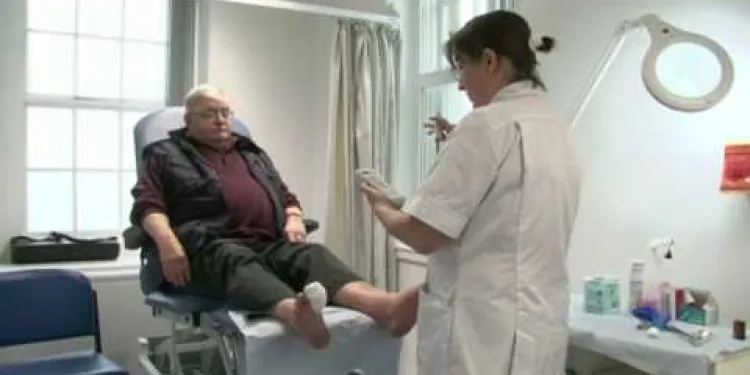
Diabetic Foot Conditions Podiatrist
Relevance: 100%
-
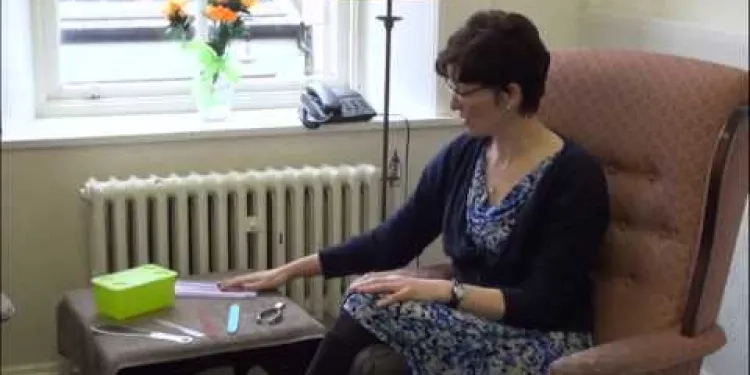
Podiatrist Personal Footcare
Relevance: 60%
-

NHS Looking after your feet - Podiatrist https://youtu.be/8J1v6K21ykc
Relevance: 47%
-

Self care for your feet - Podiatrist
Relevance: 47%
-
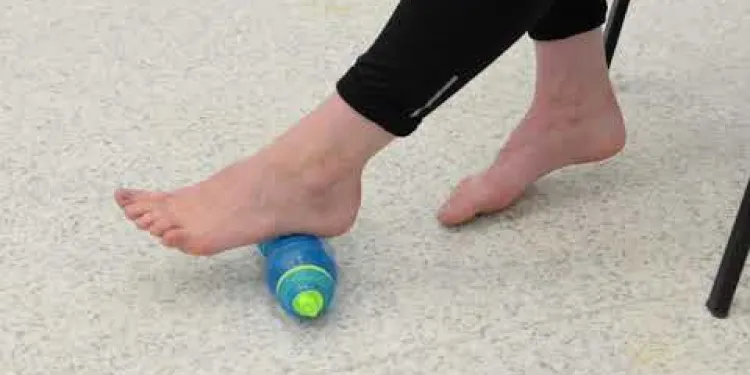
Foot Pain
Relevance: 46%
-

Podiatrist Fungal feet - fungal infection of skin and nails and how to prevent fungal infection in feet
Relevance: 42%
-
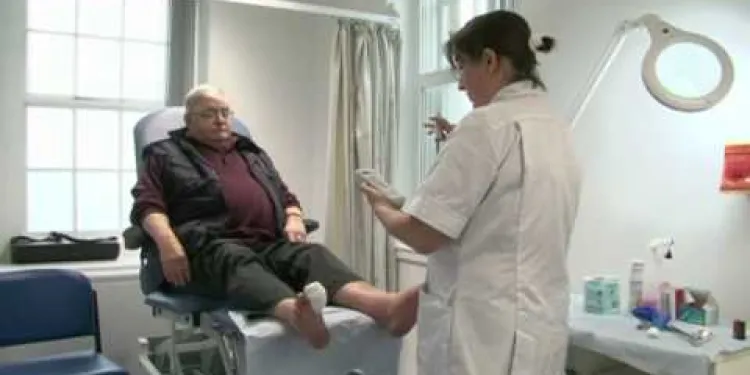
Diabetes Care - Preventing Amputations
Relevance: 42%
-

Club foot | NHS
Relevance: 36%
-

Parent guide to club foot stretches: Step 1
Relevance: 32%
-

What complications are associated with Type 2 Diabetes?
Relevance: 31%
-

NHS Ayrshire and CVO East Ayrshire - ‘Feet First – Podiatry Services in East Ayrshire’
Relevance: 27%
-
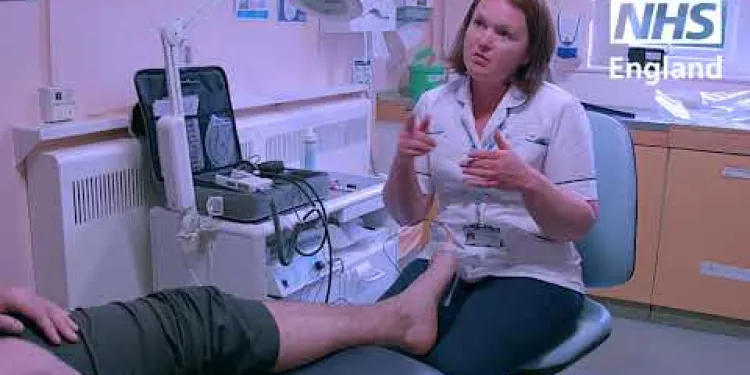
Improving outcomes for people with diabetes
Relevance: 25%
-

What is type 1 diabetes?
Relevance: 24%
-

What Is Type 2 Diabetes? | 2 Minute Guide | Diabetes UK
Relevance: 23%
-

How to manage type 2 diabetes
Relevance: 23%
-
What is Barbie Doll Diabetes?
Relevance: 22%
-

What is type 1 diabetes?
Relevance: 22%
-
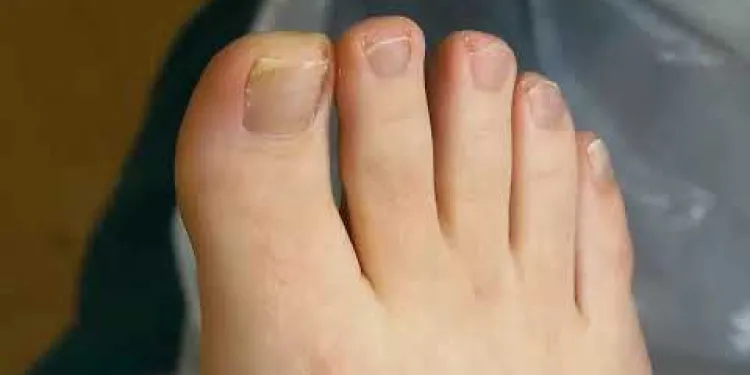
How to treat an ingrowing toenail / Involuted nail
Relevance: 22%
-
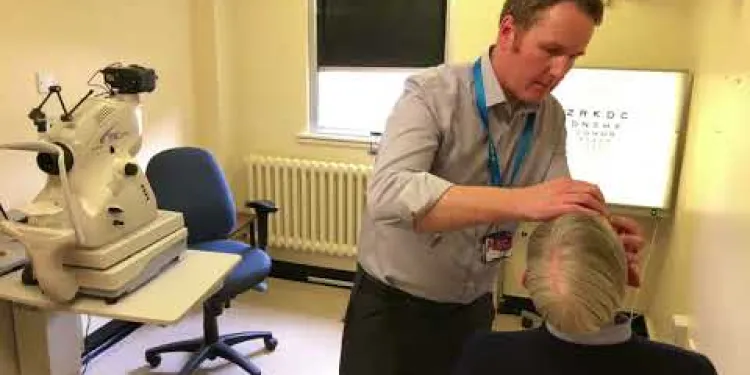
Derbyshire Diabetic Eye Screening - Diabetic Eye Screening
Relevance: 22%
-

Is Type 2 Diabetes hereditary?
Relevance: 21%
-

Can Type 2 Diabetes be prevented?
Relevance: 21%
-

Type 1 Diabetes supporting adults to manage Type 1 diabetes
Relevance: 21%
-

Diabetes Eye Screening
Relevance: 21%
-

Can Type 2 Diabetes go away?
Relevance: 21%
-
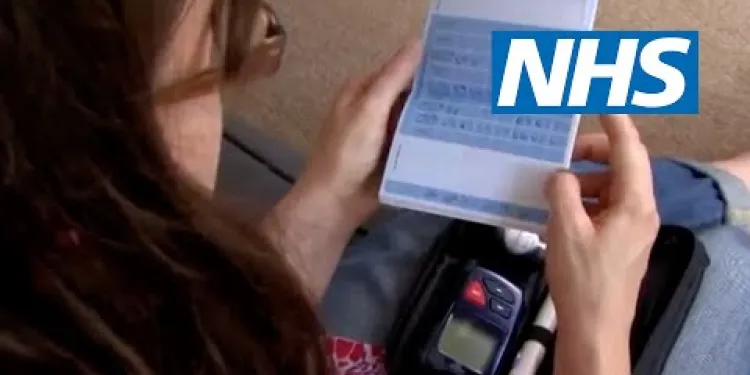
Gestational diabetes | NHS
Relevance: 21%
-

Is there a genetic predisposition to type 1 diabetes?
Relevance: 21%
-

What causes Type 2 Diabetes?
Relevance: 21%
-
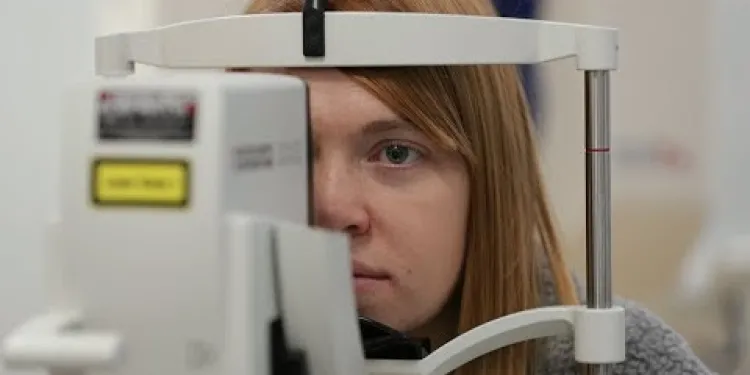
Patient voices in type one diabetes - I would have done things differently.
Relevance: 21%
-

NHS Diabetes Prevention Programme; Preventing Type 2 and improving outcomes for people with diabetes
Relevance: 21%
-

Is Ozempic suitable for type 1 diabetes?
Relevance: 21%
-

What condition is Mounjaro primarily used to treat?
Relevance: 20%
-

What are the symptoms of Type 2 Diabetes?
Relevance: 20%
-

How is Type 2 Diabetes diagnosed?
Relevance: 20%
-
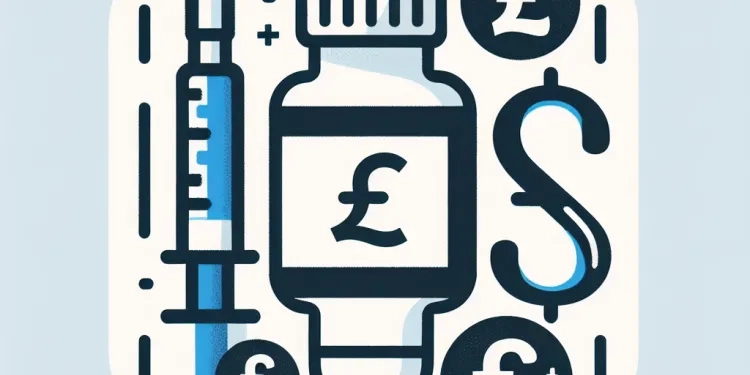
Is Teplizumab used to treat diabetes?
Relevance: 20%
-

Type 2 diabetes - common signs and symptoms UHL NHS Trust
Relevance: 20%
-

How is Type 2 Diabetes treated?
Relevance: 20%
-

Gestational Diabetes during pregnancy
Relevance: 20%
-

Should I screen my child for type 1 diabetes?
Relevance: 20%
-

Can I have sugar if I am diabetic?
Relevance: 20%
-

What does screening for type 1 diabetes involve?
Relevance: 20%
Diabetic Foot Conditions: Understanding the Role of a Podiatrist
Diabetes is a prevalent condition affecting millions of people in the United Kingdom. One of the potential complications of diabetes is diabetic foot conditions, which can lead to serious issues if not addressed promptly. A podiatrist plays a crucial role in managing and treating these conditions. This article explores the importance of podiatry in diabetic foot care and the various treatments available.
Understanding Diabetic Foot Conditions
Diabetic foot conditions refer to the range of problems that can arise due to the complications of diabetes, such as neuropathy, poor circulation, and infection. People with diabetes are more susceptible to foot ulcers, infections, and potentially severe conditions like gangrene. Regular foot checks and early intervention are critical in preventing these complications from escalating.
The Role of a Podiatrist in Diabetic Foot Care
A podiatrist is a healthcare professional specializing in the diagnosis and treatment of foot disorders. In the context of diabetes, a podiatrist offers essential services including routine foot examinations, identification of risk factors, and customized care plans. Their expertise helps in mitigating risks, such as monitoring foot health, managing minor wounds, and prescribing orthotics if necessary.
Treatment and Management Options
Treatment for diabetic foot conditions often involves a combination of lifestyle modifications, medical interventions, and ongoing monitoring. A podiatrist may recommend regular cleaning and dressing of foot ulcers, the use of prescription footwear to relieve pressure, and treatment for infections with appropriate medications. Coordination with other healthcare professionals, such as endocrinologists and diabetic educators, ensures comprehensive care for patients.
Preventive Measures and Education
Prevention is a key aspect of managing diabetic foot conditions. Podiatrists play an important role in educating patients about daily foot care routines, including proper hygiene, wearing well-fitting shoes, and avoiding walking barefoot. Regular check-ups and timely advice can prevent minor issues from becoming significant health threats.
Conclusion
In the UK, podiatrists are an integral part of the healthcare team for people with diabetes. Their expertise in foot care and preventive strategies significantly contributes to the well-being and quality of life of diabetic patients. By understanding the role of a podiatrist, individuals can take proactive steps towards managing their condition and maintaining healthy feet.
Diabetic Foot Problems: How a Foot Doctor Can Help
Diabetes is a common illness that many people have in the United Kingdom. Sometimes, diabetes can cause problems with your feet called diabetic foot problems. These issues can get serious if not fixed quickly. A foot doctor, also known as a podiatrist, is important for helping with these foot problems. Let's learn why foot care is important for people with diabetes and what treatments can help.
What Are Diabetic Foot Problems?
Diabetic foot problems are issues with your feet that happen because of diabetes. These problems include damaged nerves (neuropathy), poor blood flow, and infections. People with diabetes can get foot sores, infections, and serious issues like gangrene. Checking your feet often and getting help early can stop these problems from getting worse.
How a Podiatrist Helps with Diabetic Foot Care
Podiatrists are doctors who know a lot about foot problems. For people with diabetes, they offer many helpful services. They check feet regularly, find possible problems early, and make special care plans. Podiatrists help keep feet healthy, take care of small cuts, and may give special shoes to help.
How to Treat and Manage Diabetic Foot Problems
Treating diabetic foot problems means changing some habits, using medicine, and watching the feet carefully. A podiatrist might tell you to clean foot sores often, wear special shoes, and use medicine for infections. They also work with other health experts to make sure you get the best care.
How to Prevent Problems and Learn More
Stopping foot problems before they start is very important. Podiatrists teach people how to take care of their feet every day. This includes keeping feet clean, wearing shoes that fit well, and not walking without shoes. Regular check-ups and advice can stop small problems from becoming big health issues.
Conclusion
In the UK, foot doctors are a key part of health care for people with diabetes. They know a lot about keeping feet healthy and stopping problems. Understanding how podiatrists help can make a big difference for people with diabetes. By working with podiatrists, people can take care of their condition and keep their feet healthy.
Frequently Asked Questions
What are diabetic foot conditions?
Diabetic foot conditions refer to a range of problems that affect the feet of people with diabetes. These can include neuropathy, ulcers, infections, and even severe cases leading to amputations.
Why is foot care important for people with diabetes?
Foot care is crucial for people with diabetes because they are at a higher risk of foot injuries and infections due to reduced blood flow and nerve damage in the feet. Proper care can prevent complications.
What is diabetic neuropathy?
Diabetic neuropathy is nerve damage that occurs as a result of diabetes. It can cause tingling, pain, or loss of feeling in the feet, making foot injuries more likely to go unnoticed.
How can diabetic foot ulcers be prevented?
Preventive measures include controlling blood sugar levels, wearing proper footwear, inspecting feet daily for injuries, and seeking regular foot check-ups with a healthcare provider.
What symptoms should prompt me to see a podiatrist?
You should see a podiatrist if you notice any swelling, redness, wounds, blisters, or changes in skin colour on your feet, or if you experience pain or numbness.
What kind of footwear is best for someone with diabetes?
Proper footwear should provide adequate support, cushioning, and room for the toes. It's important to avoid tight shoes and high heels, and consider consulting a professional for custom orthotics.
Can diabetic foot conditions be cured?
While there is no cure, diabetic foot conditions can be managed and complications can be reduced through good diabetes management, regular foot care, and professional healthcare support.
How often should I have my feet checked by a healthcare professional?
It is recommended that people with diabetes have their feet checked by a healthcare professional at least once a year, or more often if they are at high risk of foot problems.
What role does a podiatrist play in managing diabetic foot conditions?
A podiatrist specialises in diagnosing and treating foot conditions. They can help prevent complications, manage existing conditions, provide care for wounds, and offer advice on footwear.
What are the risks of untreated diabetic foot conditions?
Untreated diabetic foot conditions can lead to serious infections, ulcers, and can increase the risk of amputations. Early detection and management are key to preventing these outcomes.
What lifestyle changes can help reduce the risk of diabetic foot problems?
Maintaining good blood sugar control, not smoking, exercising regularly, and following proper foot hygiene are important lifestyle changes to reduce the risk of foot problems.
Are there specific exercises that help with diabetic foot health?
Low-impact exercises like walking, swimming, and cycling can improve circulation and foot health. However, it's important to consult with a healthcare provider before starting any exercise programme.
Can diet affect my risk of developing diabetic foot conditions?
Yes, a balanced diet with controlled carbohydrates can help manage blood sugar levels and reduce the risk of complications, including foot conditions.
How does smoking affect diabetic foot health?
Smoking reduces blood circulation, which is already compromised in people with diabetes. Quitting smoking can significantly improve foot health and reduce the risk of complications.
What should I do if I notice a wound on my foot?
If you notice a wound on your foot, it is important to clean it gently, apply a sterile dressing, and seek medical attention immediately to prevent infection and complications.
What is a diabetic foot problem?
If you have diabetes, you might get problems with your feet. This happens because diabetes can hurt the nerves and blood flow to your feet. Taking care of your feet is very important.
Here are some ways to keep your feet healthy:
- Check your feet every day for cuts or sores.
- Wear comfortable shoes to protect your feet.
- Ask a doctor to check your feet regularly.
People with diabetes can have problems with their feet. These foot problems are called diabetic foot conditions. These can include:
- Nerve damage, which is called neuropathy.
- Sores on the skin, which are called ulcers.
- Infections, which are when germs make you sick.
- In very bad cases, some people might need to have part of their foot removed. This is called amputation.
If you have diabetes, it is important to take care of your feet. Here are some ways you can keep your feet healthy:
- Check your feet every day for cuts or sores.
- Wash your feet with warm water and dry them well.
- Wear comfortable shoes that fit well.
- Talk to your doctor if you notice any changes in your feet.
- Ask your doctor for help or advice if you are worried about your feet.
Why is it important for people with diabetes to take care of their feet?
People with diabetes need to take extra care of their feet. This is because diabetes can cause problems with feeling in your feet. It can also make it harder for cuts or sores to heal.
If a person with diabetes gets a cut or sore on their foot, it can become infected easily. This can cause big problems.
Here are some tips to help take care of your feet:
- Check your feet every day for cuts, sores, or anything unusual.
- Wash your feet with warm water and soap, and dry them well.
- Wear shoes that fit well and are comfortable.
- See a doctor if you notice any cuts or sores that do not heal.
Doing these things can help keep your feet healthy.
Taking care of your feet is very important if you have diabetes. This is because people with diabetes can get hurt on their feet more easily and may not feel it because of damaged nerves. Also, their blood doesn't flow well in the feet. Good foot care can stop these problems from happening.
Here's what can help:
- Check your feet every day for cuts or red spots.
- Wash your feet every day and dry them well.
- Wear shoes that fit well and protect your feet.
- If you see any sores or feel pain, tell a doctor.
Using a magnifying glass can make it easier to see your feet. You can also use a mirror. Asking someone to help check your feet can also be very helpful.
What is diabetic nerve damage?
Diabetes is an illness that can hurt the nerves in your body. This is called diabetic nerve damage.
When people have high sugar in their blood for a long time, it can hurt their nerves. Nerves help you feel things and move your body.
If someone has diabetic nerve damage, they might feel pain, tingling, or numbness, especially in their feet and hands.
Using tools to check blood sugar or asking a doctor for help can be useful. Eating healthy, exercising, and taking medicine can also help manage diabetes.
Diabetic neuropathy is what happens when your nerves get hurt because of diabetes. It might make your feet feel tingly, painful, or numb. This means you might not feel foot injuries when they happen.
How can you stop foot sores if you have diabetes?
To take care of your feet, try these tips: keep your blood sugar level stable, wear good shoes, check your feet every day for cuts or bruises, and go to the doctor often to have your feet checked.
When should I go to see a foot doctor?
Go to a foot doctor if your feet are swollen, red, have cuts, blisters, or change color. Also, if your feet hurt or feel numb, see a doctor.
What are the best shoes for someone with diabetes?
If you have diabetes, wearing the right shoes is very important. Here is what you can do:
- Wear shoes that fit well. Make sure they are not too tight or too loose.
- Choose shoes with soft inside. This helps protect your feet.
- Look for shoes that are not too flat or too high.
- Wear socks with your shoes.
- Check your feet every day. Look for any cuts or red spots.
If you need help, ask a doctor or a foot specialist. They can give you more advice.
Good shoes help your feet stay happy and healthy. They should give your feet enough support and be comfy. They also need to have enough space for your toes to wiggle.
Don't wear shoes that are too tight or high heels. They can hurt your feet.
If you need help, you can talk to a foot doctor. They might give you special shoe inserts called orthotics.
Can foot problems from diabetes get better?
There is no cure for problems with feet caused by diabetes. But you can make things better. You can do this by taking care of your diabetes, looking after your feet, and getting help from doctors and nurses.
How often should I have my feet looked at by a doctor or nurse?
It is important to take care of your feet. A doctor or nurse should look at them to make sure they are healthy.
Ask your doctor when you should have your feet checked. They might say "once a year" or "every six months." It depends on your health.
If you notice anything strange, like pain or changes in your feet, tell a doctor or nurse right away.
Here are some things that can help:
- Set a reminder on your phone or calendar to check your feet.
- Write down any questions you have before you see the doctor.
- Ask someone to go with you to the doctor if it makes you feel better.
People with diabetes should have a doctor or nurse look at their feet every year. If their feet need more care, they might need to go more often.
What does a podiatrist do to help with diabetic foot problems?
A podiatrist is a doctor who looks after your feet. If you have diabetes, it's important to take care of your feet because diabetes can cause foot problems.
Here is how a podiatrist can help:
- They check your feet to make sure everything is okay.
- They help take care of cuts or sores on your feet.
- They tell you how to keep your feet healthy, like wearing the right shoes.
- They may show you exercises to keep your feet strong.
It's good to visit a podiatrist if you have diabetes. They can help keep your feet healthy and safe.
A podiatrist is a doctor who looks after feet. They can help find out what is wrong with your feet and make them better. They stop problems from getting worse, take care of cuts and injuries, and give tips on what shoes to wear.
What happens if you don't treat foot problems caused by diabetes?
If you have diabetes, taking care of your feet is very important. If you don't, bad things can happen:
- Infections: Cuts or sores on your feet can get infected if not treated.
- Pain and Numbness: You might feel pain or can’t feel anything at all in your feet.
- Foot Sores or Ulcers: These are open wounds that heal slowly and can get worse.
- Amputation: If the problems get very bad, doctors might need to remove a part of your foot.
Here are some tips:
- Check your feet every day for cuts or redness.
- Wear shoes that fit well to protect your feet.
- Tell a doctor if you see any changes on your feet.
You can use these tools to help:
- A magnifying glass to see your feet better.
- A notepad to write down changes to tell the doctor.
If you do not take care of your feet when you have diabetes, you can get bad problems like infections or sores. These can sometimes lead to losing a toe or foot. It is important to find and treat foot problems early to stop these from happening.
How can you take care of your feet if you have diabetes?
Here are some simple things you can do to take care of your feet:
- Check your feet every day: Look for cuts, redness, or swelling.
- Wash your feet daily: Use warm water and soap. Dry them well, especially between the toes.
- Keep your nails trimmed: Cut them straight across.
- Wear comfortable shoes: Make sure they fit well and protect your feet.
- Be active: Walking is good for your blood flow.
- Ask for help if needed: Use a mirror to check your feet or ask someone to help.
If you have any problems with your feet, talk to your doctor or nurse.
It's important to keep your blood sugar at a healthy level. Don't smoke, exercise often, and take good care of your feet. This will help keep your feet healthy.
What exercises can help keep your feet healthy if you have diabetes?
Do you have diabetes? Keeping your feet strong is important. Here are some exercises you can try:
- Toe Wiggles: Move your toes up and down. This gets your toes moving and helps them stay flexible.
- Foot Circles: Sit down. Lift one foot and make circles in the air. Do this with both feet.
- Ankle Pumps: Move your feet up and down like you are pressing on a gas pedal. This helps keep the blood moving in your legs.
If you find it hard to move your feet, ask for help. You can also talk to a doctor or a foot nurse for more ideas.
Doing gentle exercises like walking, swimming, and biking can help your blood flow and keep your feet healthy. But, make sure to talk to a doctor before you start any new exercise plan.
Can what I eat change my chances of getting foot problems because of diabetes?
Yes, eating a healthy mix of foods can help keep your blood sugar normal. Eating fewer sugary foods can also keep your feet healthy.
Here are some ideas to help you:
- Eat more fruits and vegetables.
- Choose whole grains like brown bread and rice.
- Avoid sugary drinks and treats.
- Use a plate or a food diary to help plan your meals.
How does smoking hurt feet if you have diabetes?
Smoking makes it hard for blood to flow in your body. People with diabetes already have trouble with this. If you stop smoking, your feet will be healthier, and you will have fewer problems.
What to do if you see a cut or sore on your foot?
If you see a cut or sore on your foot, you should:
- Tell an adult as soon as possible.
- Wash the cut or sore gently with clean water.
- Put a clean bandage on it.
- Ask an adult to help you use tools like a simple first-aid kit.
- Visit a doctor if it does not get better.
If reading is hard, ask someone to read this to you. You can also use helpful tools like text-to-speech apps.
If you see a cut or sore on your foot, you should clean it carefully. Put a clean bandage on it. Then, ask a doctor or nurse for help right away. This will stop it from getting worse or infected.
Useful Links
Have you found an error, or do you have a link or some information you would like to share? Please let us know using the form below.
-->
This website offers general information and is not a substitute for professional advice.
Always seek guidance from qualified professionals.
If you have any medical concerns or need urgent help, contact a healthcare professional or emergency services immediately.
Some of this content was generated with AI assistance. We’ve done our best to keep it accurate, helpful, and human-friendly.
- Ergsy carfully checks the information in the videos we provide here.
- Videos shown by Youtube after a video has completed, have NOT been reviewed by ERGSY.
- To view, click the arrow in centre of video.
- Most of the videos you find here will have subtitles and/or closed captions available.
- You may need to turn these on, and choose your preferred language.
- Go to the video you'd like to watch.
- If closed captions (CC) are available, settings will be visible on the bottom right of the video player.
- To turn on Captions, click settings .
- To turn off Captions, click settings again.
More Items From Ergsy search
-

Diabetic Foot Conditions Podiatrist
Relevance: 100%
-

Podiatrist Personal Footcare
Relevance: 60%
-

NHS Looking after your feet - Podiatrist https://youtu.be/8J1v6K21ykc
Relevance: 47%
-

Self care for your feet - Podiatrist
Relevance: 47%
-

Foot Pain
Relevance: 46%
-

Podiatrist Fungal feet - fungal infection of skin and nails and how to prevent fungal infection in feet
Relevance: 42%
-

Diabetes Care - Preventing Amputations
Relevance: 42%
-

Club foot | NHS
Relevance: 36%
-

Parent guide to club foot stretches: Step 1
Relevance: 32%
-

What complications are associated with Type 2 Diabetes?
Relevance: 31%
-

NHS Ayrshire and CVO East Ayrshire - ‘Feet First – Podiatry Services in East Ayrshire’
Relevance: 27%
-

Improving outcomes for people with diabetes
Relevance: 25%
-

What is type 1 diabetes?
Relevance: 24%
-

What Is Type 2 Diabetes? | 2 Minute Guide | Diabetes UK
Relevance: 23%
-

How to manage type 2 diabetes
Relevance: 23%
-
What is Barbie Doll Diabetes?
Relevance: 22%
-

What is type 1 diabetes?
Relevance: 22%
-

How to treat an ingrowing toenail / Involuted nail
Relevance: 22%
-

Derbyshire Diabetic Eye Screening - Diabetic Eye Screening
Relevance: 22%
-

Is Type 2 Diabetes hereditary?
Relevance: 21%
-

Can Type 2 Diabetes be prevented?
Relevance: 21%
-

Type 1 Diabetes supporting adults to manage Type 1 diabetes
Relevance: 21%
-

Diabetes Eye Screening
Relevance: 21%
-

Can Type 2 Diabetes go away?
Relevance: 21%
-

Gestational diabetes | NHS
Relevance: 21%
-

Is there a genetic predisposition to type 1 diabetes?
Relevance: 21%
-

What causes Type 2 Diabetes?
Relevance: 21%
-

Patient voices in type one diabetes - I would have done things differently.
Relevance: 21%
-

NHS Diabetes Prevention Programme; Preventing Type 2 and improving outcomes for people with diabetes
Relevance: 21%
-

Is Ozempic suitable for type 1 diabetes?
Relevance: 21%
-

What condition is Mounjaro primarily used to treat?
Relevance: 20%
-

What are the symptoms of Type 2 Diabetes?
Relevance: 20%
-

How is Type 2 Diabetes diagnosed?
Relevance: 20%
-

Is Teplizumab used to treat diabetes?
Relevance: 20%
-

Type 2 diabetes - common signs and symptoms UHL NHS Trust
Relevance: 20%
-

How is Type 2 Diabetes treated?
Relevance: 20%
-

Gestational Diabetes during pregnancy
Relevance: 20%
-

Should I screen my child for type 1 diabetes?
Relevance: 20%
-

Can I have sugar if I am diabetic?
Relevance: 20%
-

What does screening for type 1 diabetes involve?
Relevance: 20%


